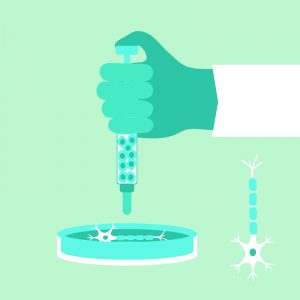Currently, cBHRT is not on FDA’s list of difficult to compound products, falling under certain exemptions of the FD&C Act, particularly, Sections 503A and 503B. Under Section 503A, a human drug compounded for an identified individual patient based on a prescription qualifies for exemption from three sections of the FD&C Act: 1) current good manufacturing practice for drugs; 2) labeling of drugs with adequate directions for use; and 3) approval of human drug products under new drug applications or abbreviated new drug applications. One of the criteria for these exemptions is that the Secretary has not identified the drug, by regulation, as a drug product that presents demonstrable difficulties for compounding that reasonably demonstrate an adverse effect on the safety or effectiveness of that drug product. However, before the Secretary may promulgate regulations to add a drug to the difficult to compound list, it must convene and consult an advisory committee on compounding of such drug(s), unless the Secretary finds that issuance of such regulations before consultation is necessary to protect the public.Continue reading
What’s New with Regenerative Medicine?
The field of regenerative medicine is ever expanding and evolving. As more viable options become available to patients, it’s important to stay abreast of regulation surrounding many of these applications.
In late 2019, the Food and Drug Administration (FDA) began informing the public of multiple reports of serious adverse events experienced by patients who were “treated” with non-FDA approved products marketed as containing exosomes. As a general matter, exosomes used to treat diseases and conditions in humans are regulated as drugs and biological products under the Public Health Service Act and the Federal Food Drug and Cosmetic Act and are subject to premarket review and approval requirements. At the time of the 2019 warning, there were no FDA-approved exosome products and the FDA since then has not put out any new guidance.Continue reading
CBD Business Threats – FDA Letters and Consumer Complaints
 By: Susan St. John
By: Susan St. John
With phenomenal growth and expansion in the Hemp Industry comes trials, tribulations, the FDA, and consumer complaints! Let’s take a look at what’s going on that might have an adverse impact on your burgeoning business or foray into Hemp a/k/a CBD.
FDA Letters
The FDA sent letters to 15 CBD business companies in late November 2019, warning and admonishing these companies that their CBD products were being promoted to treat disease or for having certain therapeutic properties. Specifically, the FDA reviewed these companies’ websites, social media pages, marketing material, etc., finding that the companies promoted products containing cannabidiol or CBD in violation of the Federal Food, Drug, and Cosmetic Act (FD&C Act). Further, the FDA stated that the companies’ CBD products are unapproved new drugs sold in violation of the FD&C Act, and were misbranded under the FD&C Act. The FDA letters did not just target products sold for human use and consumption, but also targeted CBD products sold for use on pets, stating that “the products are unapproved new animal drugs that are unsafe under the FD&C Act and adulterated products under the FD&C Act.Continue reading
Stem Cell Litigation Update: FDA Granted an Injunction
 By: Matt Fischer
By: Matt Fischer
In a decision expected to cause waves through the rapidly-expanding regenerative medicine industry, a U.S. District Court Judge ruled on June 3rd that the U.S. Food and Drug Administration (FDA) is entitled to an injunction in a lawsuit filed against U.S. Stem Cell Clinic, LLC (US Stem Cell) based in Sunrise, Florida. In her decision, U.S. District Court Judge Ursula Ungaro agreed that the FDA has the authority to regulate the popular stem cell procedure known as stromal vascular fraction (SVF) – administering processed stem cells derived from adipose tissue (i.e. fat tissue) – and that US Stem Cell is not exempt from regulation.
To recap, in May 2018, the U.S. Department of Justice (DOJ) filed complaints against US Stem Cell and a California stem cell clinic seeking permanent injunctions to prevent the marketing and administration of the SVF procedures without FDA approval. Prior to the filing of these actions, both companies received warning letters from the FDA. The letters also addressed the results of inspections and the need to resolve significant deviations from manufacturing practice requirements. Continue reading
Second Proposed Stem Cell Bill Goes to Florida House of Representatives
 By: Matt Fischer
By: Matt Fischer
On November 29, 2018, Florida Representative Chuck Clemons proposed house bill 65 (“HB 65”) that would significantly tighten regulation on the use of stem cells. If the stem cell bill is signed into law, Florida will join other states (e.g. California, Texas and Washington) in passing some type of stem cell regulation. While some bills around the country have centered the regulation on informing prospective customers of the risks associated with these treatments, HB 65 takes a more stringent approach with the threat of criminal exposure and includes certain protections for providers in the form of a “right-to-try” law.
Some of the highlights of HB 65 include:Continue reading
FDA Warning for Med Spa Owners on “Rejuvenation” Devices
 By: Matthew Fischer
By: Matthew Fischer
At the end of July, the U.S. Food and Drug Administration (FDA) issued a press release to alert health care providers and patients regarding the use of energy-based medical devices that are used to perform vaginal “rejuvenation” procedures. Although these devices have been approved to treat certain conditions, such as pre-cancerous lesions in the cervix, they have not been approved for cosmetic rejuvenation. According to the FDA, these procedures have at times been associated with serious adverse events such as burns, scarring, and chronic pain.
Many “rejuvenation” procedures are intended to treat symptoms and/or conditions such as vaginal laxity; pain during sexual intercourse; decreased sexual sensation; and vaginal atrophy, dryness, or itching. The FDA warning noted that it is aware that multiple device manufacturers may be marketing energy-based devices to treat these symptoms and/or conditions even though to date, the agency has not cleared or approved for marketing any energy-based devices to treat theses symptoms and/or conditions. Continue reading
FDA Stem Cell Clinic Legal Issues: Stepped Up Enforcement
 By: Matthew Fischer
By: Matthew Fischer
With the rapid growth of the regenerative medicine field, the U.S. Food and Drug Administration (FDA) is trying to strike the right balance between preventing harm to the public and fostering innovation of new treatments. In an effort to prevent potential harm, the FDA stepped up enforcement this week. In two complaints filed by the U.S. Department of Justice (DOJ) on behalf of the FDA, the FDA has sought permanent injunctions against a California and Florida stem cell clinic along with their owners and officers to prevent the marketing of stem cell products without FDA approval and for failure to correct deviations from manufacturing practice requirements.Continue reading
New State Stem Cell Laws: A Brief Overview

By: Matthew Fischer
Amid the growing focus on stem cell products by the Federal Food and Drug Administration (FDA), multiple states have proposed and passed some form of stem cell law or clinic regulation. While some center the regulation on informing prospective customers of the risks associated with these treatments others seek to protect the availability of these treatments in the form of a “right-to-try” law. Here are a few examples:
California
Effective January of this year, California implemented a new regulation in its Business and Professions Code aimed at clinics offering non-FDA approved stem cell treatments. The regulation requires a notice to be posted at the clinic entrance along with the requirement to provide a separate written notice to the patient prior to initiating treatment. However, this requirement does not apply if a licensed health care practitioner has obtained approval for an investigational new drug from the FDA. Continue reading



